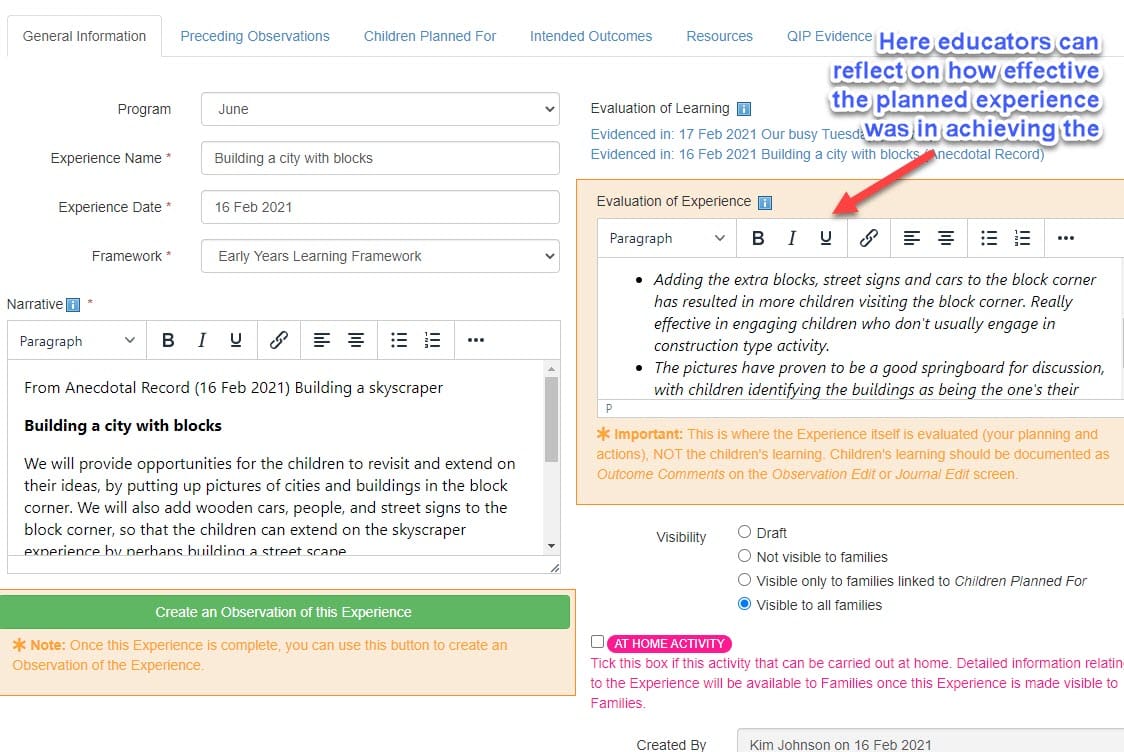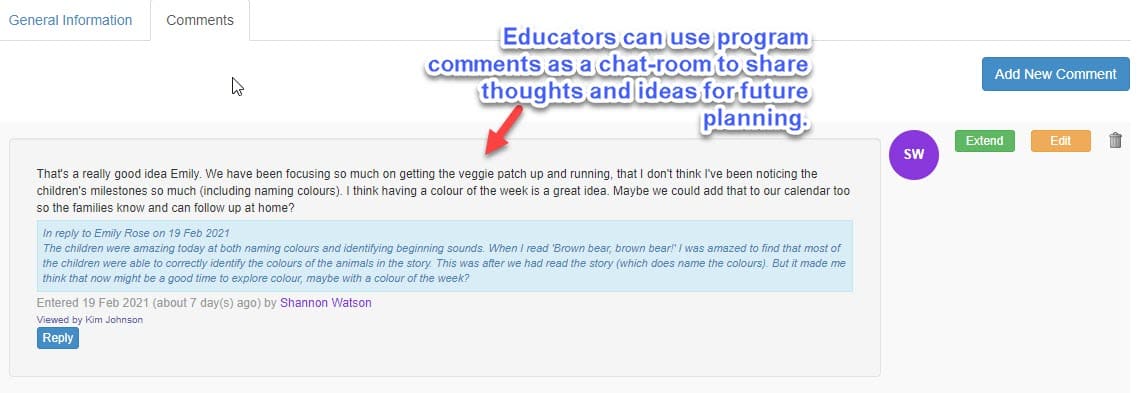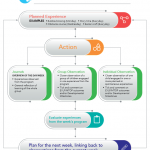Upon Reflection…
A question that is often asked by users of EarlyWorks is ‘How often should services complete reflections of pedagogy?’ And, ‘If we are using evaluations of experiences and we are using program comments, do we also need to individually complete reflections of pedagogy?’
My first response is usually, well, that is a service decision. Some services have set processes for critical reflection, while others leave it to individual educators to decide when and where to critically reflect.
I have been doing a bit of critical reflection myself, and for all it’s worth, here’s what I am thinking.
I think of Evaluations of Experiences as being focused on one planned experience. So, if we planned an experience with the intention of encouraging the toddlers to become more adventurous with trying different food textures, in the evaluation of that experience we might reflect on how well that experience achieved the planned outcome or intention of the children being more open to tasting foods with different textures. We might also reflect on any unexpected outcomes. So what worked, what didn’t work, and what would we do differently next time?

In the Program Comments, educators can engage in conversation about how the Program is going. So rather than focusing on one experience, educators can look at the Program as a whole, talking about what is working well, what could be done better, and perhaps offering suggestions about where to take the children next. Educators might also use this chat forum not only to notice and celebrate successes, but to also think about deeper questions such as whether any children are being disadvantaged, and how we might address that. This is a space for educators to respond to each other’s comments, building on each other’s observations, and importantly, hearing all voices, and responding with respect.

Reflections of Pedagogy might be a little deeper and perhaps more personal. Educators might reflect on their work, the Practices they use, and the Principles that guide them. To make this process a little easier, EarlyWorks allows Educators to tick the relevant Principles and Practices and Quality Areas. Educators might also reflect on the theories and philosophies that shape their understandings, and any aspects of their work that are not helped by their usual ‘go to’ theories and philosophies. This could be a space for exploring other theories that might better explain what has been observed. How might these new theories affect practice? What strategies might be used to ensure all children can fully participate in the Program?

The Educational Leader or a Mentor can then respond to Educator’s reflections of pedagogy, offering insight, ideas, suggestions, further reading, or just encouragement. The Educator can then respond to that feedback, noting any changes in thinking or practice that have happened as a result of the reflection.
By using these three opportunities for reflection within EarlyWorks, services will have evidence of addressing Element 1.3.2 Critical Reflection on children’s learning and development, both as individuals and in groups, drives program planning and implementation.







